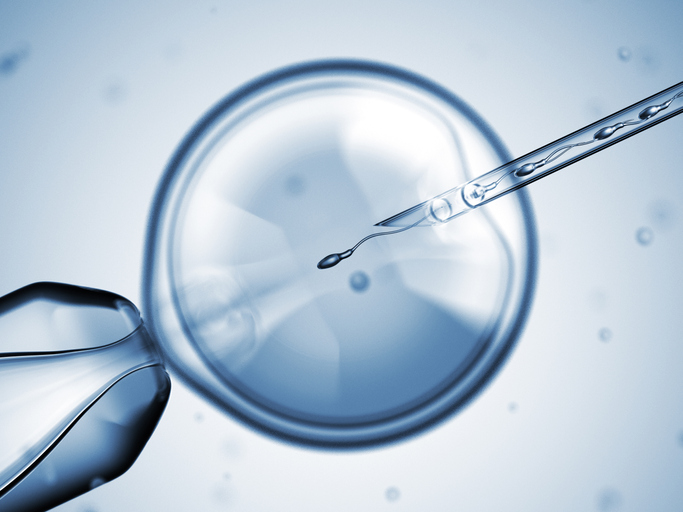What is female infertility?
Infertility is when you haven’t been able to get pregnant after having regular unprotected sex for at least 1 year. It can affect either partner, or both.
More than 80% of heterosexual couples usually get pregnant (conceive) within 1 year of having unprotected sex every 2 or 3 days. Even so, more than 14% of couples have problems.
Read on to learn more about female infertility, including symptoms, causes and treatment options.
What are the symptoms of female infertility?
The most obvious symptom of female infertility is the inability to get pregnant. Often, there are no other signs.
However, there are a few signs that may suggest that you’re not ovulating properly. This means that your ovaries aren’t releasing an egg each month, to be fertilised by sperm.
Signs of problems with ovulation can include:
- a menstrual cycle that’s much longer than the 28-day average – for example, more than 40 days
- a menstrual cycle that’s much shorter than the 28-day average – for example, less than 21 days
- missing or irregular periods
- no periods at all (absent periods)
When to see a doctor about female infertility
You should see a doctor if you haven’t been able to get pregnant after a year of regular unprotected sex.
The chances of infertility increase with age. If you’re having problems getting pregnant and you’re 35 or older, it’s a good idea to see a doctor sooner than this – after about 6 months (although it doesn’t necessarily mean there’s a problem).
You should also see a doctor as soon as you can if you’re having trouble conceiving and you have a medical condition or you’ve had treatment that may have affected your fertility, including a sexually transmitted infection (STI) or treatment for cancer.
It’s worth remembering that problems getting pregnant aren’t always due to female infertility – so a doctor may want to examine both you and your partner.
What causes infertility in women?
There are many different possible causes of infertility. If you’re having problems conceiving, it’s important to discuss your options with a doctor.
Also, as many as 1 in 4 couples are never able to pinpoint why they’re unable to get pregnant – this is known as unexplained infertility.
Here’s a summary of the main causes of infertility.
Problems during ovulation
Often, female infertility is the result of problems during ovulation. Eggs may not be released on some months or every month due to several conditions, including:
- polycystic ovary syndrome (PCOS) – this hormonal disorder can cause your ovaries to become enlarged and develop fluid-filled sacs (follicles), and they may stop releasing eggs regularly. Having polycystic ovaries is different from having a cyst on your ovaries
- thyroid problems – an overactive thyroid gland (hyperthyroidism) or underactive thyroid gland (hypothyroidism) can stop your ovaries releasing eggs
- premature ovarian failure – also sometimes called premature ovarian insufficiency (POI), this is when your ovaries stop releasing eggs before you’re 40. It’s important not to confuse premature ovarian failure with early menopause (when your periods stop). You may still get your periods when you have premature ovarian failure – but your ovaries don’t release any eggs beforehand
Surgery
Some types of surgery can affect your fertility.
Surgery on the pelvis or tummy (abdomen), including surgery for an ectopic pregnancy, can sometimes cause blocked or damaged fallopian tubes. These are the ‘tunnels’ connecting your ovaries and your womb (uterus), which both sperm and the fertilised egg need to use.
Surgery on the neck of your womb (cervix) can sometimes affect fertility, if it results in scarring or a shortened cervix.
Surgery to remove your womb (hysterectomy) to treat problems such as very large fibroids, severe pelvic pain or cancer will also prevent you from getting pregnant through sex, or carrying a baby to term.
Endometriosis
Endometriosis is a condition when tissue that’s similar to the lining of your womb starts to grow in your ovaries or elsewhere in your body. This can cause damage to your ovaries or fallopian tubes.
Cervical problems
Various problems relating to the cervix and womb can affect your fertility. These include:
- problems with cervical mucus – the mucus, or fluid, in your cervix becomes thinner during ovulation. This helps sperm to ‘swim’ more easily up to the fallopian tubes to meet the egg. If the cervix doesn’t produce the right type of mucus, this can affect the sperm’s ability to meet the egg
- non-cancerous polyps or tumours – also known as fibroids or myomas, non-cancerous (benign) polyps or tumours can sometimes block fallopian tubes or stop the egg implanting in the womb
- a narrowing of your cervix (cervical stenosis) – this can be caused by damage to the cervix or by an inherited condition
Pelvic inflammatory disease
Pelvic inflammatory disease (PID) is when you get an infection in your womb, fallopian tubes or ovaries as a result of STIs such as chlamydia or gonorrhoea. Having regular sexual health screenings can help identify STIs, even if you have no symptoms.
PID can result in damage and scarring to your fallopian tubes, which can stop eggs from reaching your womb.
STIs such as chlamydia may be common, but they only develop into PID if they’re not diagnosed and treated. If you think you may have an STI, you should always get tested and treated as soon as possible
Sterilisation
Sterilisation is an operation that involves the blocking of the fallopian tubes to stop eggs moving through the fallopian tubes from the ovaries to the womb.
It’s seen as a permanent form of birth control and is very hard to reverse.
Medications
Some medications and medical treatments can reduce fertility or lead to infertility. They include relatively common medications and treatments such as:
- chemotherapy – some medicines used for chemotherapy during cancer treatment can affect fertility, but it depends on the medication used. Some chemotherapy medications can cause permanent infertility, while some only cause temporary problems. For example, your periods may stop or become irregular during chemotherapy, but return to normal afterwards
- pain relief and anti-inflammatory medication – long-term or high-dose use of some types of non-steroidal anti-inflammatory drugs (NSAIDs), such as ibuprofen, may affect your ability to get pregnant. But this may be reversible once you stop taking the medication
Some other medications, including antipsychotic medicines, can also result in infertility or problems such as missed periods, which can affect ovulation.
A doctor will be able to speak with you in more detail about the medications you’re taking and whether they may be having an impact on your fertility.
Smoking, alcohol and recreational drugs
There’s evidence that smoking cigarettes can reduce female fertility. Fertility isn’t only decreased among smokers, but also among children whose parents smoked during pregnancy.
If you drink too much alcohol, it may cause fertility problems. Experts recommend cutting back on alcohol if you’re trying to get pregnant.
Recreational drugs, including marijuana and cocaine, can also have a negative impact on fertility and affect your body’s ability to release eggs during ovulation.
Read about the causes of male infertility, and learn the truth about fertility myths.
How is female infertility diagnosed?
A diagnosis of infertility usually won’t be made until you’ve been trying to get pregnant for at least 1 year by having regular unprotected sex 2 or 3 times a week.
A doctor will want to speak to you at length to help identify why you’re having problems getting pregnant. It’s important to remember that getting a diagnosis and starting treatment, if needed, may take some time.
There are a number of steps a doctor will take to make a diagnosis.

A physical examination
A doctor will ask you about your medical history and perform a short physical examination that may include:
- weighing you
- checking your body – especially around your pelvis – for any signs of conditions such as fibroids, PID or endometriosis. In particular, they’ll check for any lumps, soreness or infection
Sexual history and lifestyle review
A doctor may also ask you a series of questions to get a fuller picture of your situation. They may ask:
- about your sex life – this includes how long you’ve been trying to get pregnant, how long ago you stopped using contraception (and what type you’d been using), how many times a week you’ve been having sex, and whether you’ve been having any problems in your sex life
- about your periods – this may include how regular your periods are, if they’re painful and whether you’ve ever noticed unusual bleeding after sex or between your periods
- whether you’ve been pregnant before, whether you’ve had any miscarriages and whether you or your partner have had children in previous relationships
- about any STIs you may have had or any other conditions that may be affecting your ability to get pregnant
- about your day-to-day habits, including whether you smoke, take recreational drugs or drink alcohol, and how high your stress levels are
Fertility tests
A doctor may recommend you have a range of tests to work out why you’re having problems getting pregnant. These tests may include:
- blood tests – these are used to test your levels of the hormone progesterone, which can indicate whether or not your ovaries are releasing eggs. You may also need a test for your levels of gonadotropins – hormones that stimulate your ovaries to release eggs
- ultrasound scans – various types of ultrasound scans may be used to see if there are any problems with your ovaries, fallopian tubes or womb. An ultrasound can also help to identify conditions such as fibroids and endometriosis
- an X-ray that uses dye (hysterosalpingogram) – this may be used to help identify if any blockages are stopping eggs from moving from your ovaries to your fallopian tubes
- laparoscopy – this is also called keyhole surgery and it’s performed by a specialist. It’s a procedure that involves cutting a small hole in your tummy so that the doctor can insert a small camera into your body to take a closer look at your ovaries, fallopian tubes and womb. A laparoscopy might be performed if, for example, your ultrasound or X-ray scans show blockages in your fallopian tubes
- chlamydia test – there are 2 types of chlamydia test: a urine test and a test based on taking cells from your cervix using a swab
How is infertility treated?
Depending on the outcome of your medical checks and tests, a doctor may suggest fertility treatment. This will depend on your diagnosis and why you can’t get pregnant.
Treatment options may include:
Medication
Various medications are available to stimulate the release of eggs from your ovaries each month and to boost your levels of ovulation-related hormones. A doctor will be able to advise on the best option for you.
Surgery
Depending on your diagnosis, surgery may be needed to:
- remove a blockage or scarring from your fallopian tubes
- help treat endometriosis, PCOS or fibroids
Intrauterine insemination and in vitro fertilisation (IVF)
There are 2 main options for what is known as ‘assisted conception’:
- artificial insemination – also known as intrauterine insemination (IUI), this is when healthy sperm are placed into your womb in an effort to fertilise 1 or more eggs during your usual ovulation cycle
- IVF – this is when mature eggs are taken from your body and fertilised with sperm before being transferred back into your womb
Depending on your individual situation and the cause of your infertility, both techniques can use your own or donor eggs and sperm.
Read more about infertility treatment.
Outlook
Everyone is different – your outlook and chances of getting pregnant will depend on what’s causing your infertility and the treatment recommended for you.
Around 84% of couples usually conceive naturally within a year of trying. That means having unprotected sex every 2 or 3 days. This increases to 92% after 2 years, and to 93% a year later.
Unfortunately, if you haven’t become pregnant in the first 3 years of trying, your chances of getting pregnant within the next year then fall to less than 25%.
Your health questions answered
Can I have an LH surge and not ovulate?
 Answered by: Dr Roger Henderson
Answered by: Dr Roger HendersonThis is possible but uncommon. Some women can have a luteinizing hormone (LH) surge, along with other positive signs of ovulation, but still not ovulate and this is called luteinized unruptured follicle (LUF) syndrome. During your menstrual cycle, the hormone changes stimulate your ovaries to produce follicles containing eggs. One follicle becomes dominant and the LH surge usually causes the follicle to burst and release the egg inside. In women with LUF syndrome, the dominant follicle doesn’t release the egg, so ovulation doesn’t happen. This can be a cause of unexplained infertility.
Can female masturbation make you infertile?
Answered by: Healthily's medical teamNo, masturbation won’t make you infertile. In fact, masturbation has some positive health benefits, such as acting as a stress reliever and helping you relax. In addition, orgasms from masturbation (or sex with a partner) can provide pain relief, including from period pain.
Can an abortion cause infertility?
Answered by: Healthily's medical teamIt’s unlikely that having an abortion will affect your chances of getting pregnant again. A very rare exception may be if you develop an infection in your womb during the procedure. If the infection isn’t treated quickly, it could spread to your ovaries and fallopian tubes, and develop into PID.
Key takeaways
- female infertility is when it’s not possible to get pregnant by having regular unprotected sex
- most people get pregnant within 1 year of trying, but your chances get less as time passes
- a diagnosis of infertility usually won’t be made until you’ve been trying to get pregnant for at least 1 year
- often, female infertility is the result of problems during ovulation, but it can also be caused by a range of other medical conditions, or even be unexplained
- depending on your diagnosis, a doctor may recommend fertility treatment to help you get pregnant






